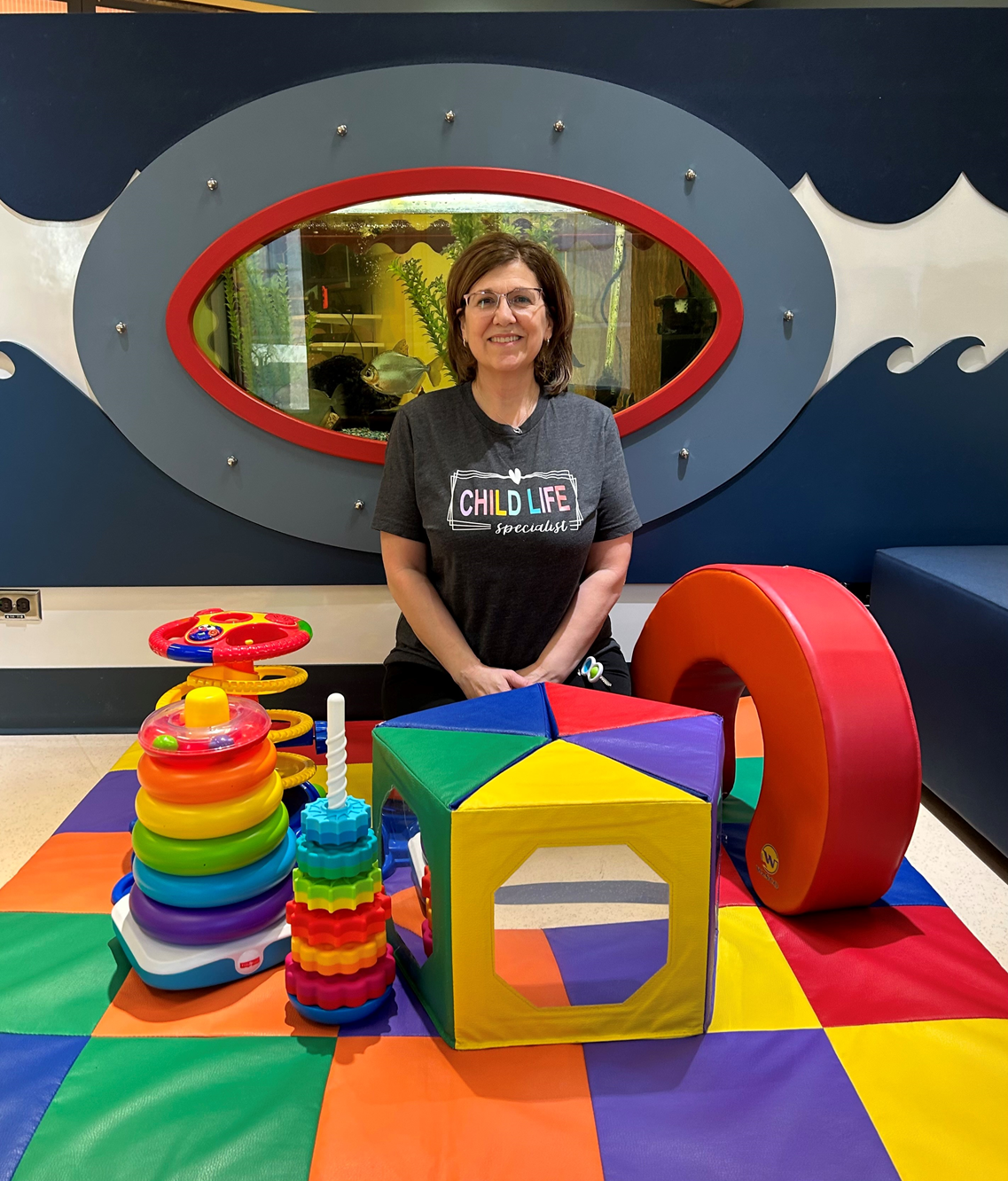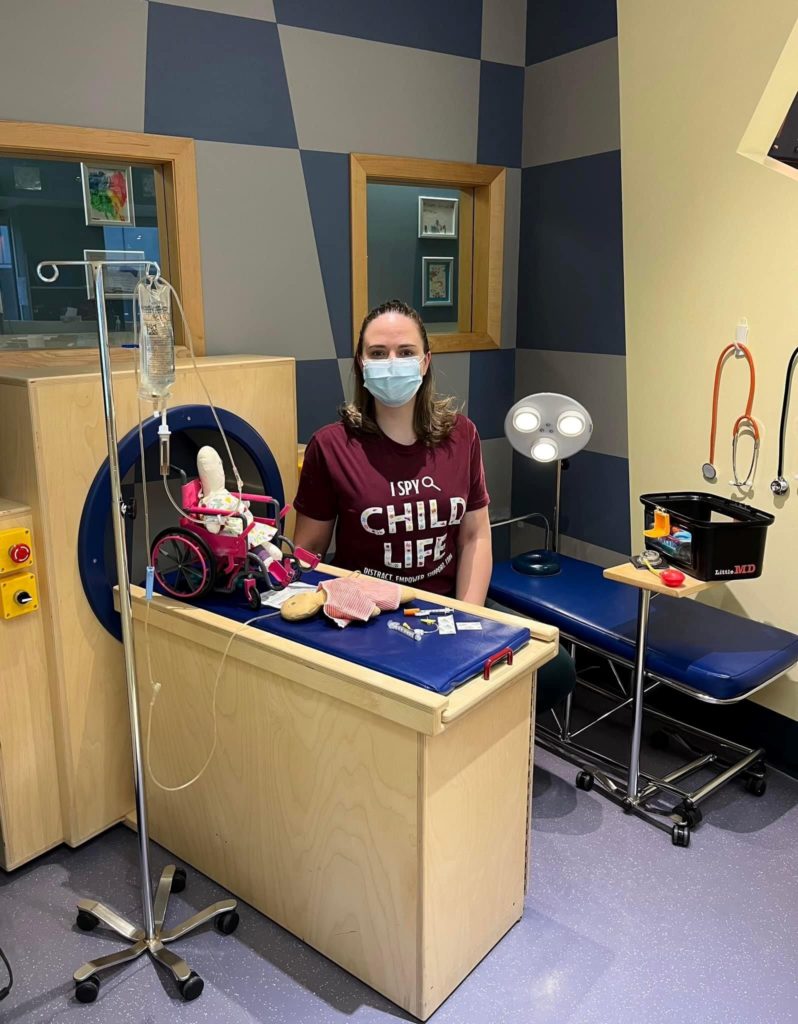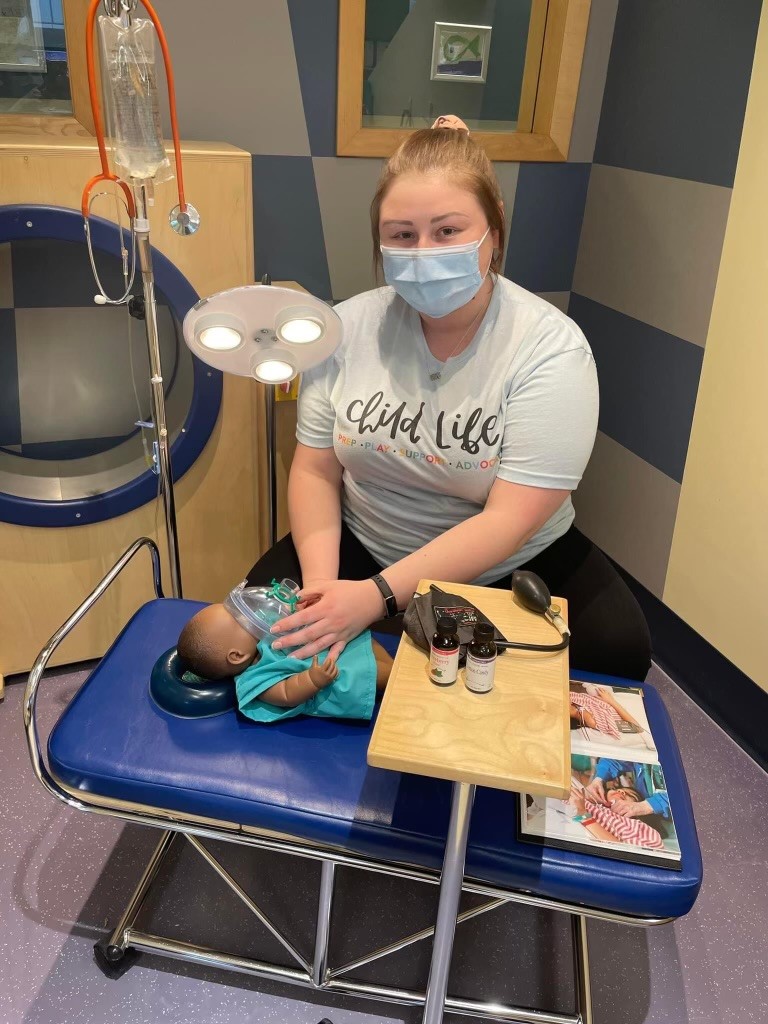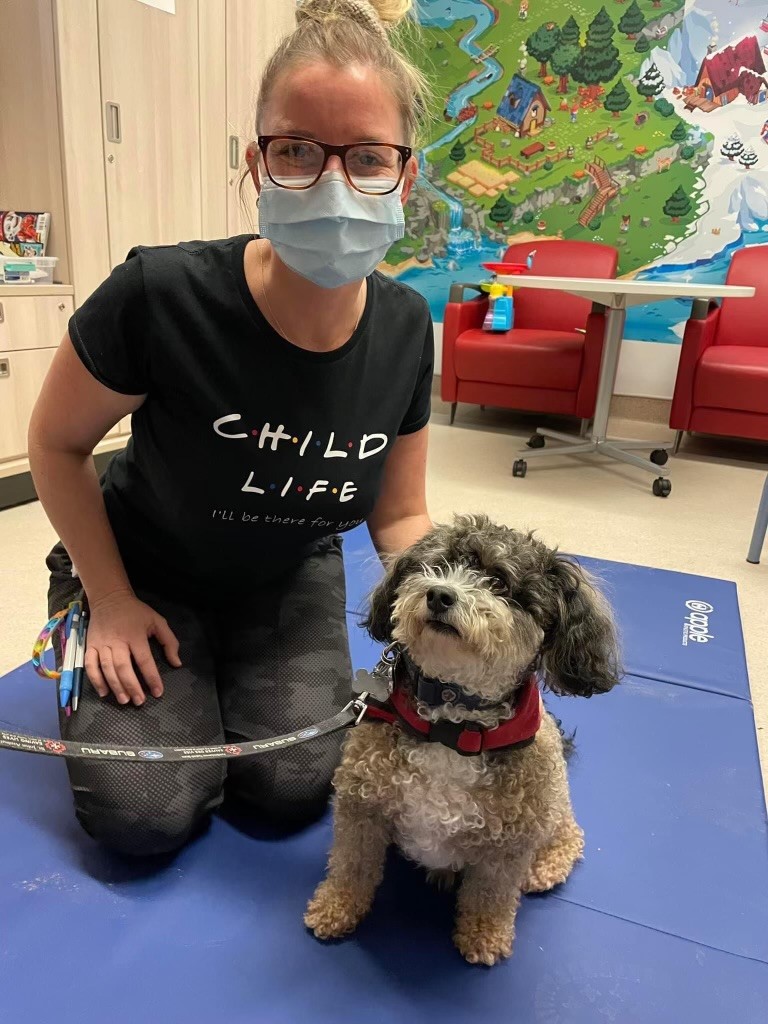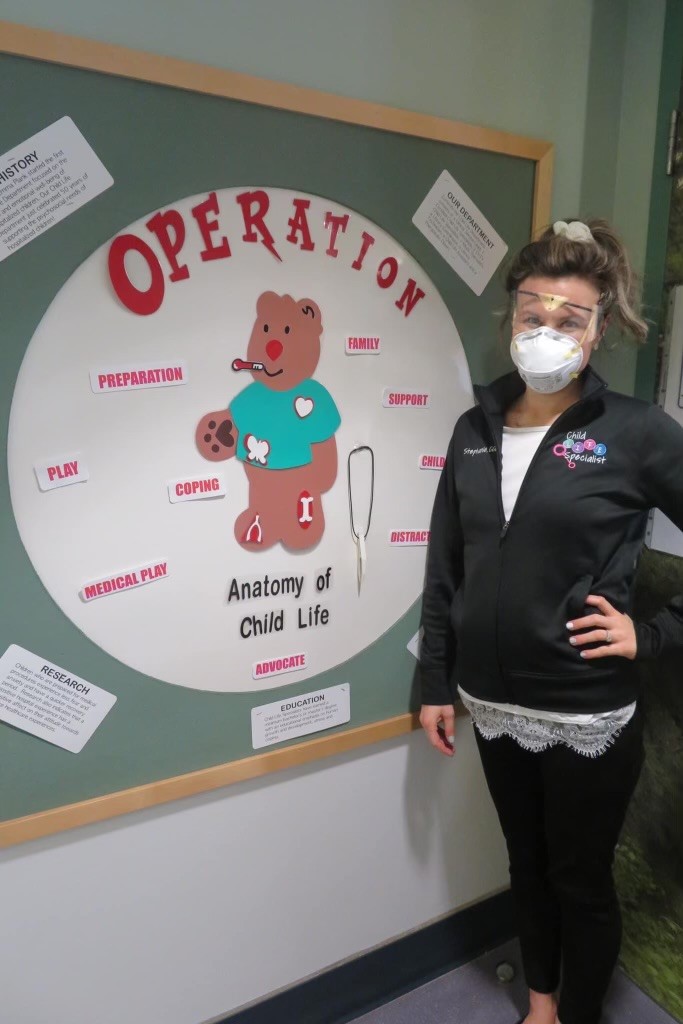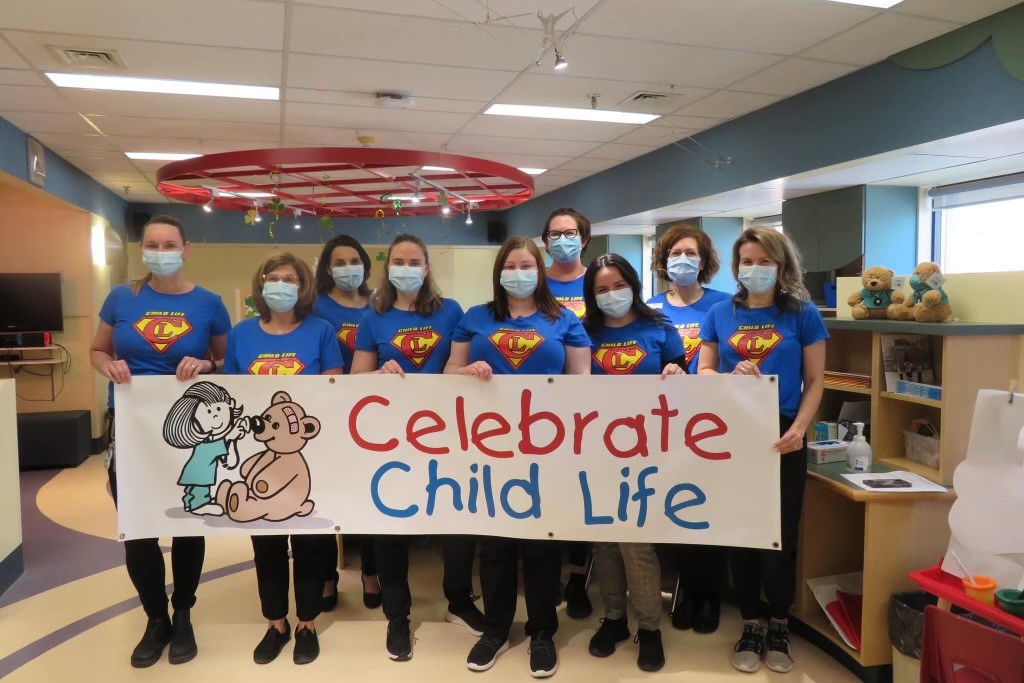
A hospital can be a scary, anxiety-producing place for adults, so imagine what it must be like for a child facing a medical emergency, serious illness or prolonged treatment.
At Children’s Hospital in the Health Sciences Centre in downtown Winnipeg, Child Life Specialist Sherry T. and her colleagues deliver this psychosocial service to meet the emotional and developmental needs of hospitalized children.
“I had always wanted to work with children with support needs, then I went to HSC to meet a friend and we walked past the Main Playroom. There was no looking back,” laughs Sherry. “I couldn’t believe there were people working at the hospital with the sole purpose of making life better for young patients. I didn’t know it then, but this ended up being my lifelong career. More than three decades later, and I haven’t left!”
Child Life programs are the standard in pediatric hospital care and help children cope and adjust in hospital. At Children’s Hospital, the only facility in Manitoba that provides the service, 10 Child Life Specialists, three Child Life Assistants, and a recently-added Audio Visual Specialist work in the Main Playroom, on inpatient units, in the ICU, Day Surgery, Emergency Department, and in the closed-circuit TV station (CHTV) to provide evidence-based interventions that alleviate the stress associated with hospitalization.
“I’ve mostly worked in the Main Playroom with inpatients who are able to leave their units and participate. We typically see 10 to 12 patients each day, which ebbs and flows depending on the needs of the hospital. The mornings are for children up to age five, providing developmental play and support, then in the afternoons, we have patients from ages six to 17, which provides peer interaction and socialization.”
Child Life Specialists support children on and off the units by providing play, preparation and ways of coping.
“Of course, we try to build fun into many of the things we do because we want kids to have moments of joy despite what they’re going through, and we want to help take their minds off their worry. But we have an important medical role to play. Research shows that children who are prepared for medical procedures experience less fear and anxiety, and they recover more quickly. We also engage them in therapeutic play, which can help reduce pain after a procedure and support healing.”
Child Life Specialists are highly educated, with either a Bachelor’s or Master’s degree with an emphasis on child growth and development, family dynamics, stress and coping. They belong to a professional organization called the Association of Child Life Professionals (ACLP) and are required to be certified as a Child Life Specialist (CCLS) by writing a US-based examination.
Sherry is also a volunteer MAHCP Member Advocate, and she says that becoming union members has made a significant difference to the Child Life team.
“In most of my years here, we hadn’t had any issues attracting staff, but it is becoming more and more difficult because we have fallen way behind. Child Life Specialists in Saskatchewan are earning $10 more per hour than we are, so, of course, we lost people to jobs in that province. Thanks to MAHCP’s efforts, our wages are now more competitive. We hope that will mean improved success in attracting and retaining staff, and encouraging more young people to consider Child Life as a viable career option.”
Even though the work is wonderfully rewarding, Sherry says it can also be draining, as the team is always ‘on’ and takes emotional care of others. “We are passionate about what we do, but this is a job that demands of a person. You can become worn down if you don’t take time to care for yourself. The thought that keeps me going is knowing how our services and programs help sick kids.”
Read a 2022 feature article about the team on the Shared Health website.

